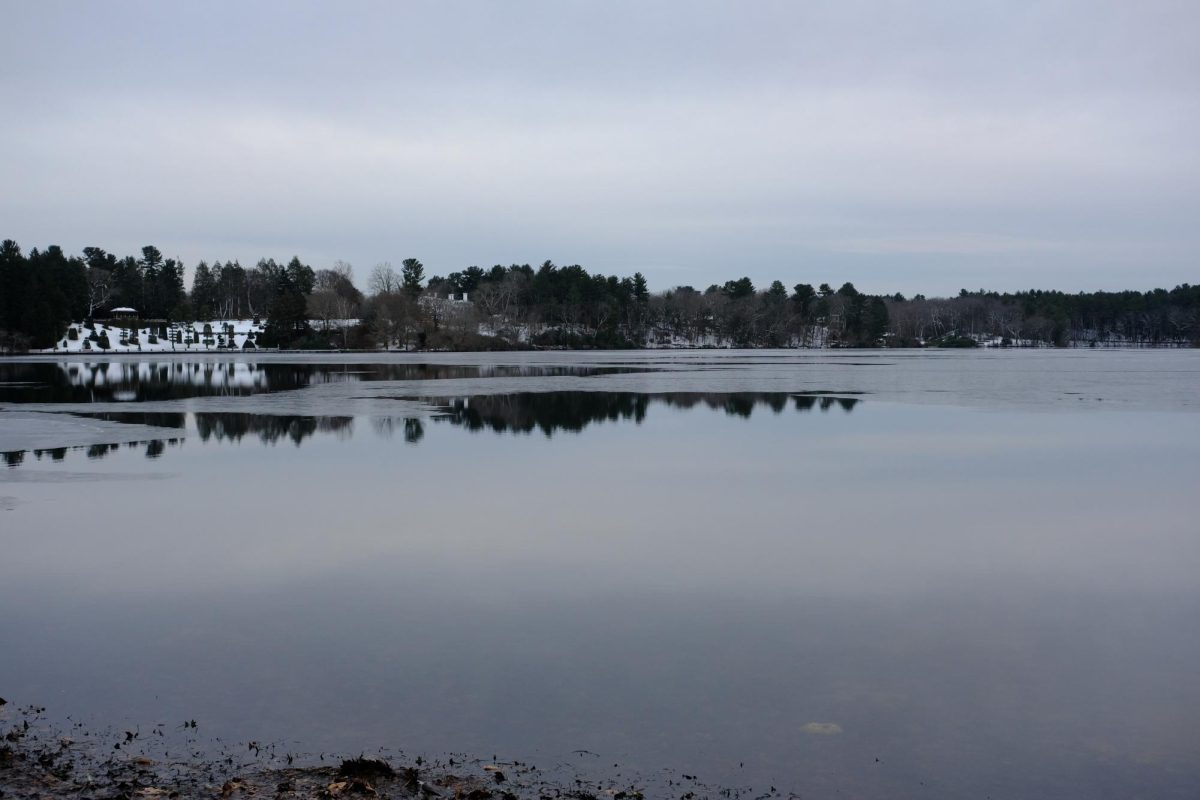Shima Ahmed ’28 had established plans to go home to Sudan for winter break. That all changed when President Trump was elected.
“I realized any new policies that would be implemented might affect me. Since I have no alternative other than studying here in the US for the next four years, it [was] a bit risky to go during very short breaks,” Ahmed said.
While there have not been executive orders signed into law that directly target international students, institutions and students alike are anxious about what is to come.
In his previous administration, Trump implemented a ban on travel to the US from seven Muslim-majority countries (also known as the “Muslim ban”), suspended the issuance of H-1Bs (post-study work visas), and cancelled thousands of Chinese students’ study visas, among other orders impacting international students.
Most recently, Trump promised to sign an executive order to cancel visas of international students who broke laws during pro-Palestine protests, suggesting the start of his target of immigrant students.
After the election results, Tana Ruegamer, Slater International Center Director and Advisor, sent an email to all international students, urging them to come back to Wellesley College before Jan. 20. While the email did not explicitly state that this was Trump’s inauguration date, Ruegamer mentioned that the Slater staff “will do our best to offer support and guidance as we move through this period of time together.”
With a large degree of uncertainty in the air, some international students expressed how Trump’s presidency has already affected their future travel plans.
“It would also affect my summer plans. I know that if I left, there might be something that will happen during the summer, and then they’ll say ‘people from this specific country cannot come back’ or ‘they should not get a visa.’ It’s actually my main struggle right now,” Ahmed said. Sudan was one of the countries included in the previous Muslim ban.
Ahmed’s F-1, or student visa, has expired, complicating her situation. While the typical duration of F-1 visas is four years, some countries only have an F-1 duration of less than two years, meaning that those students will need to reapply for a visa to come back to the US.
However, other international students have not expressed concern about travel at the moment.
“I think Trump is not affecting me at all because I’ve been doing a STEM degree, so I get a three-year extension in America for my visa. Also, going back home is non-negotiable for me. Most of my friends are the same, so I don’t think it’s really affecting us that much,” said Sanaa Sharma ’25, an Economics and English major from India.
However, Sharma echoes the uncertainty of Trump’s first couple of months in office.
“I think it’s so uncertain right now. I think if I am concerned, I will be in six months when I see what’s happening. But not now,” Sharma said.
In a statement from Ruegamer on behalf of the Slater International Center, she echoes this sentiment of uncertainty.
“Because of the ever-changing nature of Trump’s agenda, we will also be flexible with the support we offer depending on the circumstances,” Ruegamer wrote.
The Slater International Center will be offering many resources for international students in the coming months. This includes having a CommuniTea series to speak informally about their concerns, organizing 1:1 consultations with Slater representatives, providing Red Cards for students to understand their rights, and working with an immigration attorney.
Still, some are concerned about how much the Slater resources would really help all international students.
“For people whose countries are on the blacklist, [the resources] are not that helpful,” said Ahmed, “I believe, as international students, we should just accept the realities of our countries, and the relationship between our countries and the US.”
Contact the editors responsible for this story: Ruby Barenberg, Sazma Sarwar, and Valida Pau




